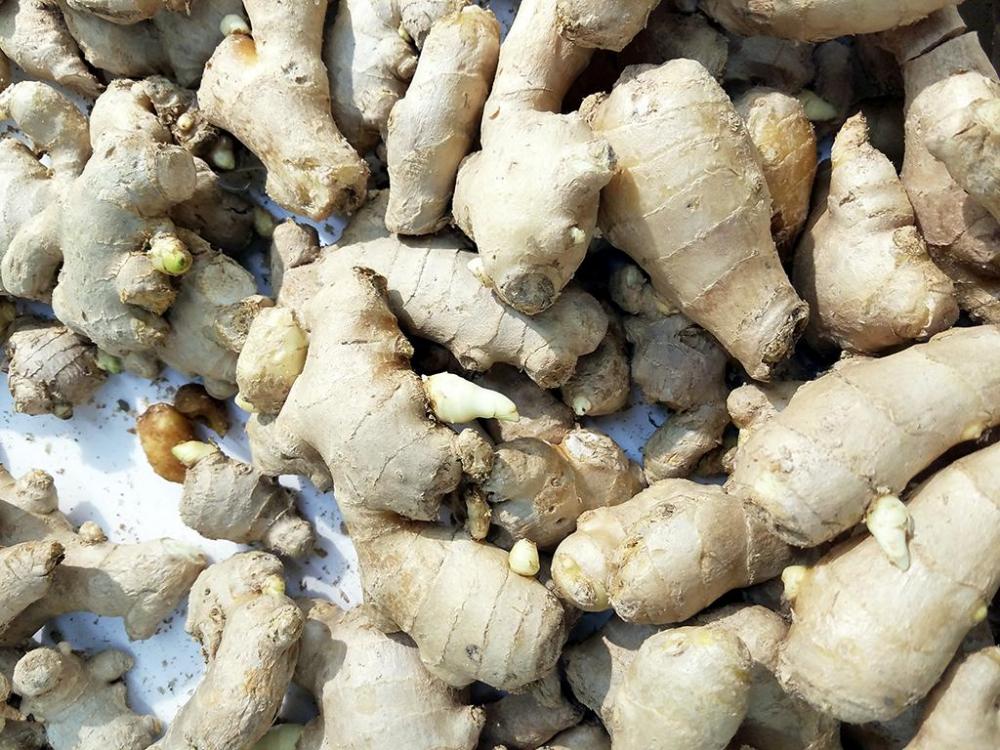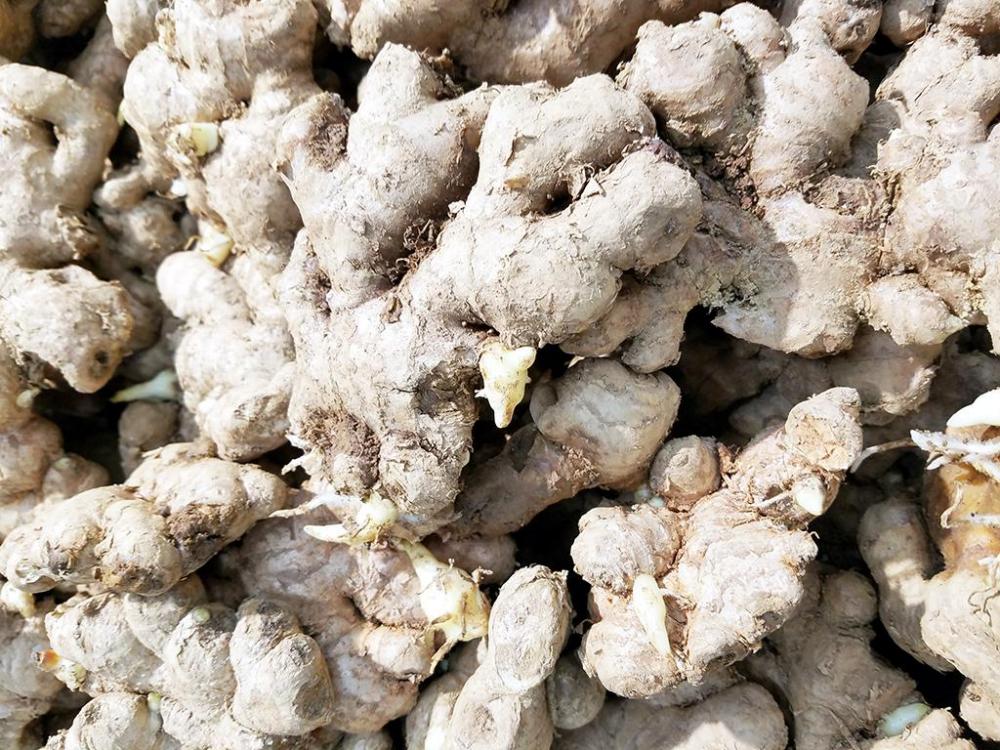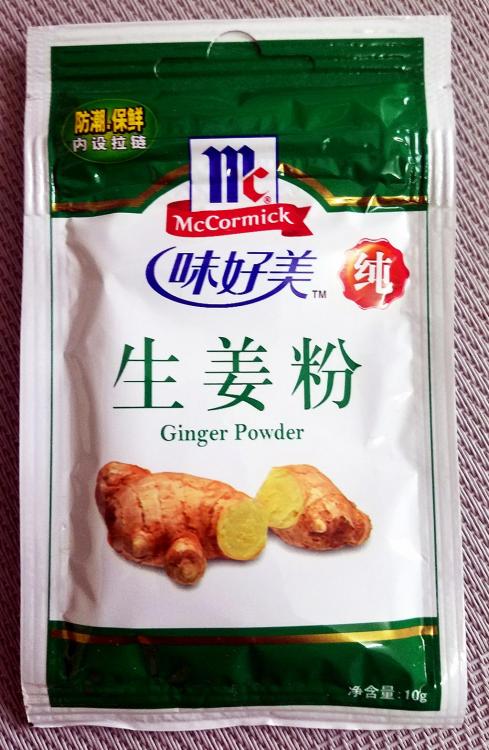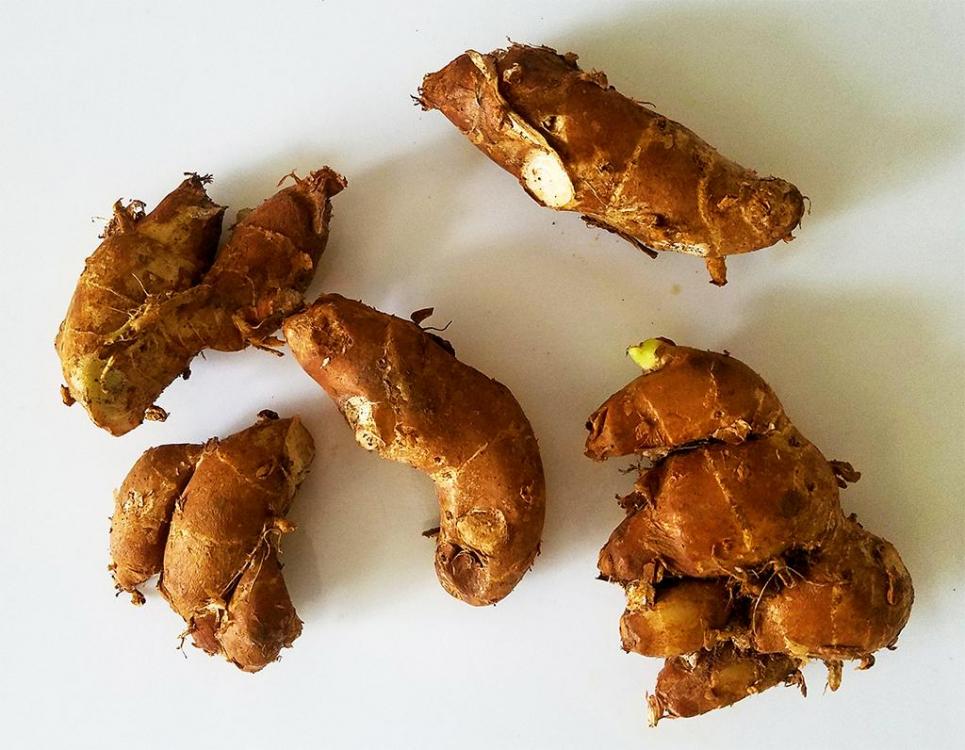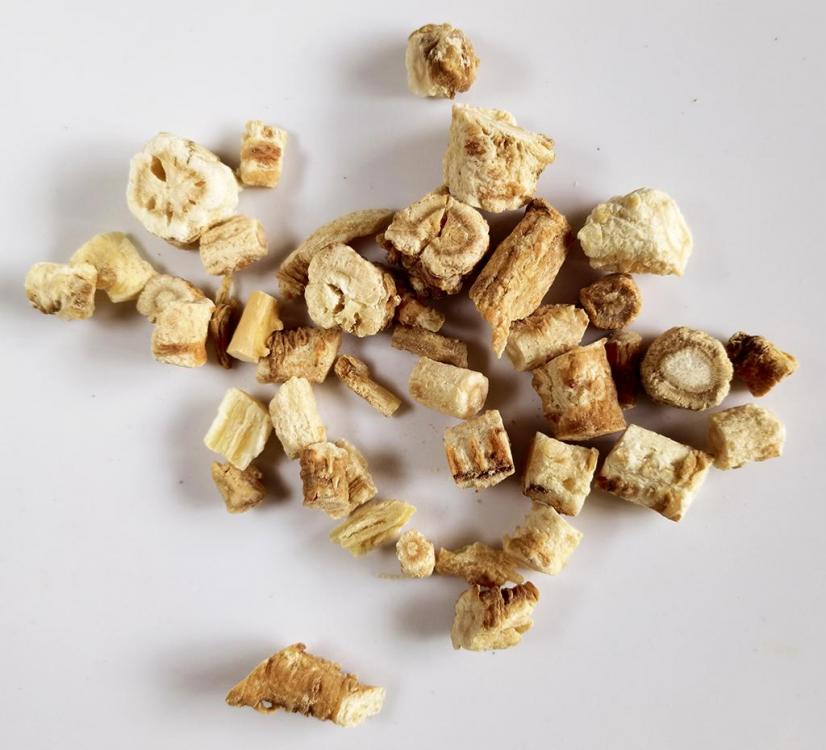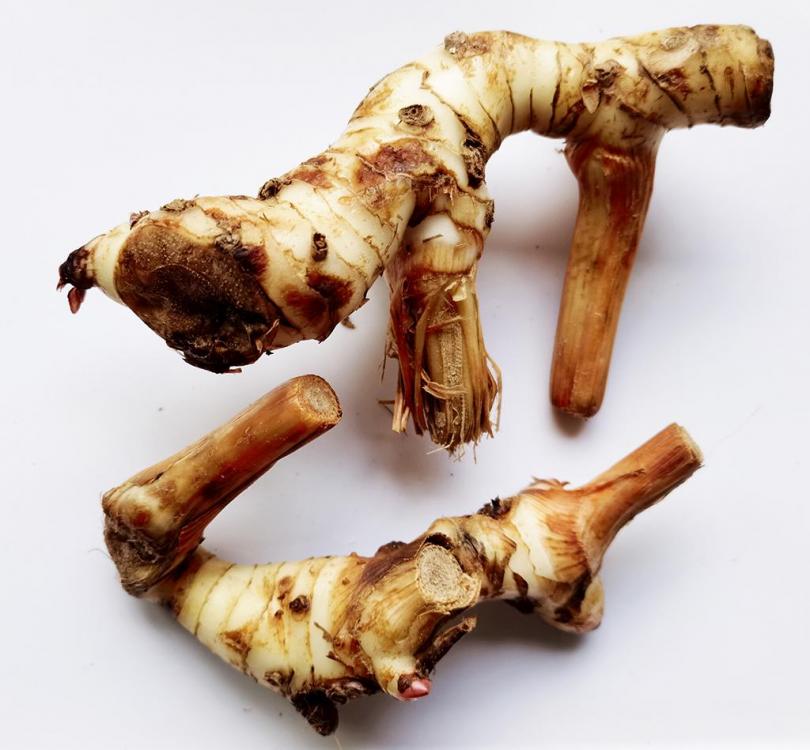11. 姜 (jiāng) – Ginger – Zingiber officinale
Ginger
姜 (jiāng) – Ginger is, of course, one of the Chinese holy trinity of seasonings alongside garlic and scallions, although here in the south, the third is more often chilli. But, this most common, important spice is complicated.
Fresh ginger (生姜 - shēng jiāng), pictured above, comes in three main forms and each has its own uses. All are the rhizome of the plant.
Apart from the regular ginger we all know and which is just called 姜 (jiāng), there is also 嫩姜 (nèn jiāng). This is often pickled and is the same as the pickled ginger often served in Japanese restaurants as a palate cleanser between sushi or sashimi items. It is also eaten raw, by some.
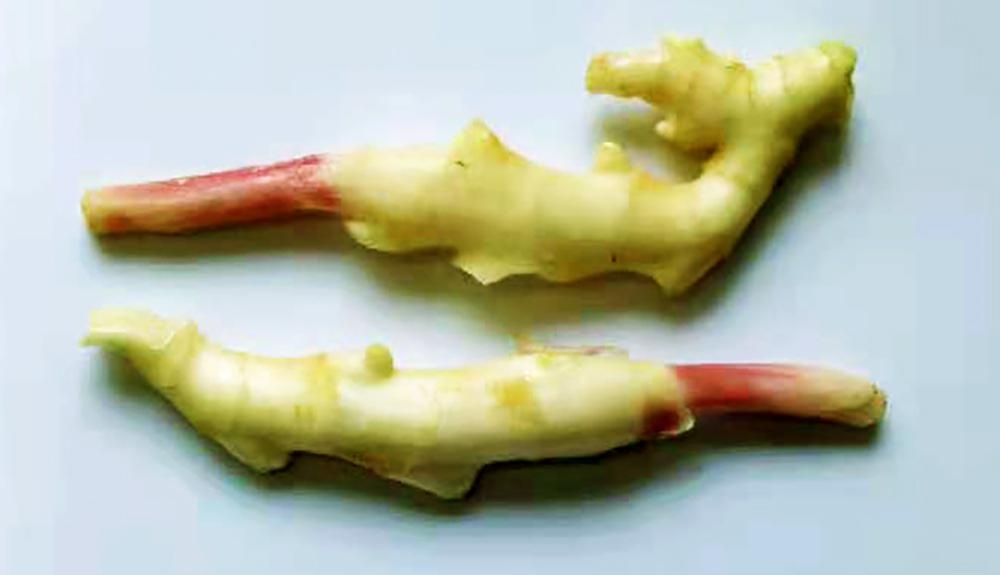
Young ginger
老姜 (lǎo jiāng) is old ginger. It is spicier than regular ginger, leading to the Chinese idiom 姜还是老的 (jiāng hái shì lǎo de là), literally ‘old ginger is hotter than young ginger’ meaning ‘experience counts’. 老姜 (lǎo jiāng) is often used in hotpots ans braised dishes for it's stronger taste.
Old ginger
Sliced ginger is also dried and sold as a spice for hot pots. It is known as 干姜 (gān jiāng). Contrary to what some websites say, ground ginger powder (生姜粉 - shēng jiāng fěn) is not used in Chinese cooking nor is it a good substitute for fresh. The only places I can buy it are specialist bakery supply stores and larger supermarkets.
Then we come to 沙姜 (shā jiāng) or 'sand ginger', also known as 山奈 (shān nài), although the latter more correctly refers to the whole plant rather than the rhizome. This is actually Kaempferia galanga or lesser galangal, a close relation to true ginger and more often associated with Thai cuisine, although it is used throughout SE Asia and India, as well as southern China. It comes both fresh and dried. It has a peppery camphorous taste.It comes both fresh and dried, although the latter is more common. It is mainly used in hot pot spice mixes.
Fresh sand ginger
Dried sand ginger
True galangal, 高良姜 (gāo liáng jiāng), Alpinia galanga, is available, if I go hunting, but is not well-known.
Galangal


